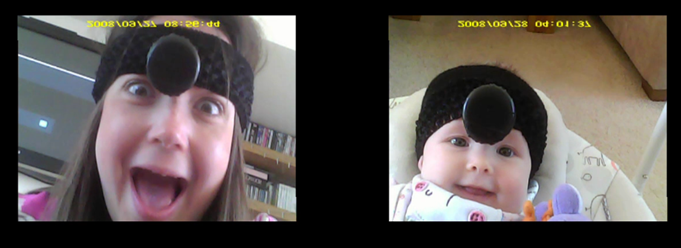Postnatal depression is more common than many people realise, affecting around one in 10 women after having a baby. Because chronic and severe maternal depression has potentially far-reaching harmful effects on children, its widespread occurrence can undermine the future prosperity and well-being of society as a whole. However, the mechanisms to explain the association between maternal and children’s mood disorders are still unclear.
Dr Pearson believes that mother-infant interactions are of central importance to child development due to the early dependence on the mother and sustained impact of early life experience on multiple child outcomes. In order to investigate this area a multidisciplinary approach is needed.
Dr Pearson used her Elizabeth Blackwell Institute Early Career Fellowship award to set up a study combining large-scale epidemiological observations with detailed psychological investigations, as well as incorporating the understanding of social policy and economic systems. Her review of the latest research from high and low income countries (published in the Lancet, 2014 Nov 15;384(9956):1800-19) led her to conclude that the associations between postnatal depression and disruption to emotional, behavioural, cognitive and physical development of a child may be stronger in more socially disadvantaged settings, highlighting the need for more research in low income countries (see a University of Bristol news story). Dr Pearson’s work in Brazil, the first of its kind, showed that in this context the mental health of maternal but not paternal grandmothers was as important to child’s emotional and behavioural development as mothers’ mental health.
As part of this study, Dr Pearson also developed new ways to reliably code and measure mother and infant behaviour during play interactions using new software and ‘wearable’ technology: baby headcam, see picture. These measures will be used in future studies to understand better the relationship between maternal depression and maternal behaviour, as well as investigating the role of maternal education (parenting knowledge/confidence and health-literacy) that could inform prevention strategies.
Dr Pearson’s research involved local Bristol mothers and key health professionals to discuss research and intervention strategies, including running a workshop at a local Henbury and Brentry children’s centre and formed part of ‘Improving Perinatal Mental Health’ Health Integration Team within Bristol Health Partners collaboration.
This study has now resulted in a grant of €1.5million from the European Research Council awarded in autumn 2017. See the University of Bristol website for further information.
